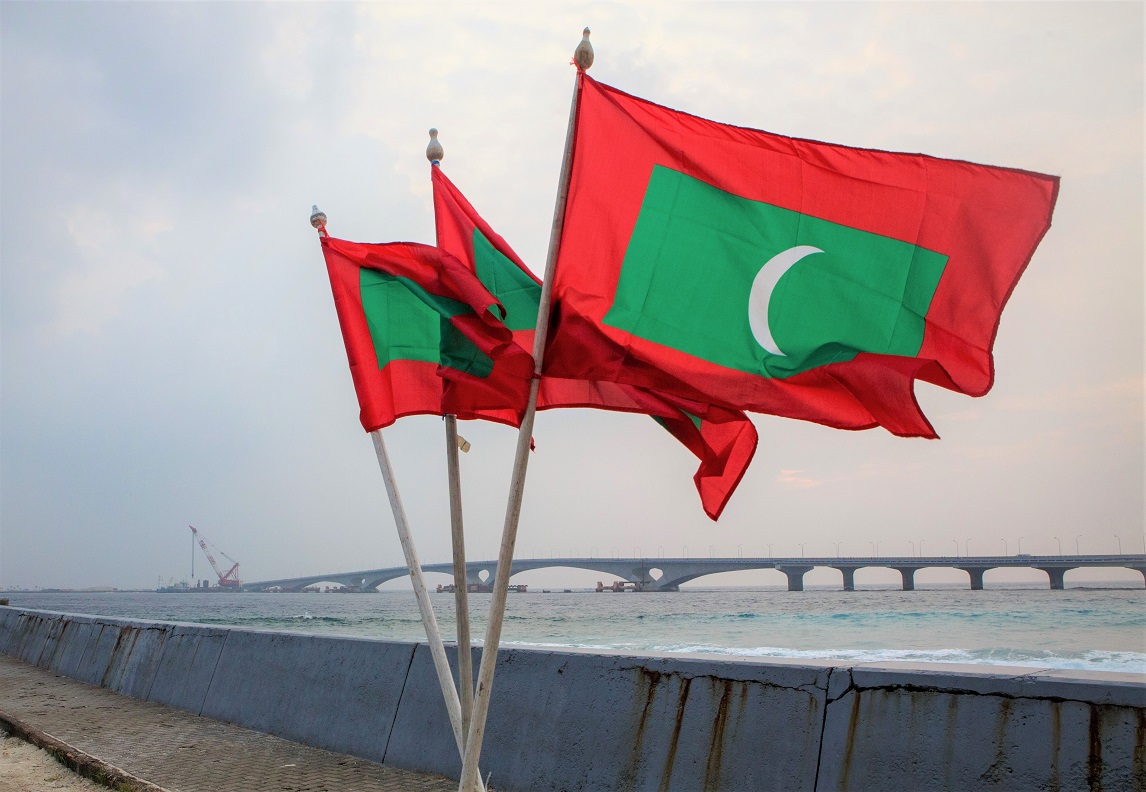
In early April, voters across the Maldives will return to the polls for the second major election in less than a year. The parliamentary elections on April 6 present the most significant political test yet for recently elected President Ibrahim Solih, who won a surprising election in September amidst a surge of democratic optimism.
Why It Matters?
The Maldives is a country of nearly 1,200 islands that plays an increasingly significant role in trade and security issues in the Indian Ocean. Following a September 2018 election win by a pro-democracy coalition, the April 6 parliamentary elections present the first major test for the new government since it took office.
Who is Running?
Final lists released by the Election Commission have 386 total candidates running for the 87 parliamentary seats. In addition to a number of independent candidates, the largest numbers of candidates come from the Maldivian Democratic Party, Maldives Reform Movement, Adhaalath Party, Jumhooree Party and the Progressive Party of Maldives and the People’s National Congress, the parties of former President Abdulla Yameen. Other registered parties include: the Maldives Labour and Social Democratic Party; the Maldivian Democratic Alliance; and the Maldives Thirdway Democrats, a new party affiliated with former VP Ahmed Adeeb, recently transferred from prison to house arrest for corruption charges.
What’s the Outlook?
The outcome of the April 6 election will be seen as a referendum on President Solih’s first months in office. The results will have a significant impact on the Solih administration’s ability to address the diverse number of issues facing the country, which range from rebuilding the public sector after years of devastating corruption to addressing the significant debt owed to China.While the Maldives Democratic Party (MDP) has the largest number of candidates, an agreement between another coalition party, the Jumhooree Party (JP) and the party of former President Abdulla Yameen may present a major challenge. The most significant takeaway will be whether the MDP secures a majority since doing so would allow them to pass legislation supporting President Solih’s agenda without the need for a coalition.
Current Context
Representatives to the Maldives’ parliament, the People’s Majlis, are elected to five-year terms by winning a plurality of votes under a first-past-the-post system. Since each MP represents approximately 5,000 individuals, they know many of their constituents personally. Vote-buying and other forms of electoral corruption are not unusual. Earlier this year, the Maldives’ Election Commission added two new seats in response to a population increase in Malé, bringing the total number of parliamentary seats to 87.
The April 6 election will follow months of growing tension within the four-party coalition that won the presidential election last September. Fractures began to appear soon after Solih took office. Parties disagreed on a deal some leaders hoped would split parliamentary districts before any votes took place. While never finalized, the agreement would have allocated set percentages of the total MP seats to each party months before election day and prevented parties from running candidates in any districts above a specific quota.
After President Solih’s Maldives Democratic Party (MDP) chose to run candidates in 86 districts across the country, leaders from the coalition Jumhooree Party (JP) alleged that this violated the deal. In February, JP party leader Qasim Ibrahim announced a deal to support candidates of the Progressive Party of Maldives (PPM) and People’s National Congress (PNC), the parties of deposed former President Abdulla Yameen, in return for PPM/PNC support for 27 JP candidates. A Supreme Court decision that extended the filing deadline for candidates and allowed those who lost in party primaries to run as independents triggered additional outrage from MDP members who said this ruling exceeded the purview of the judicial branch.
Parliament recently passed a measure that will invalidate ballots with any marks other than the standard check marks. Previously, prearranged marks were used by individuals participating in vote buying to signal that they voted as directed. According to a study, more than a third of voters in past elections were involved in vote buying efforts.
IRI in the Maldives
IRI’s programming in the Maldives included support for an observation of the 2018 presidential election. IRI continues to support the newly elected coalition government through programs that support democratic governance within executive management, civil society engagement, local governance and transparency.
Top